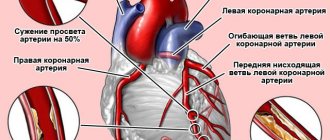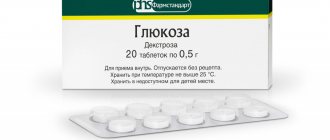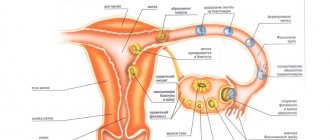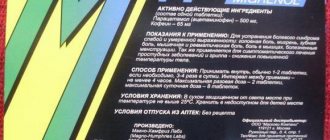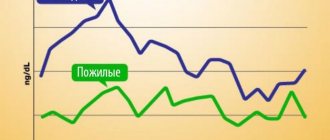Write a review
Reviews: 0
Manufacturers: Kusum Healthcare Pvt. Ltd.
Active ingredients
- Ascorbic acid
- Zinc oxide
- Sodium ascorbate
Disease class
- Other manifestations of vitamin A deficiency
- Ascorbic acid deficiency
Clinical and pharmacological group
- Not indicated. See instructions
Pharmacological action
- Antioxidant
Pharmacological group
- Vitamins and vitamin-like products
Chewable tablets Ascozin
Instructions for medical use of the drug
Description of pharmacological action
Ascocin is a combination drug containing vitamin C (ascorbic acid) and zinc. Ascocin has a pronounced antioxidant effect, affects lipid and carbohydrate metabolism, and regulates metabolic processes. Ascorbic acid helps increase the body's nonspecific immune response, has an adaptogenic effect, helps normalize the permeability of the vascular wall, and also participates in a number of redox reactions. Ascorbic acid plays an important role in the process of blood clotting, the metabolism of cholesterol and amino acids, as well as the synthesis of catecholamines and steroid hormones. Vitamin C stimulates collagen production, induces regenerative processes, improves liver function and regulates exocrine activity of the pancreas.
Indications for use
Ascocin is intended for the treatment of patients with hypo- and vitamin deficiency C. Ascocin is used in the complex therapy of patients suffering from infectious diseases, decreased immunity, disorders of lipid and carbohydrate metabolism, dysfunction of the endocrine glands, as well as pathologically increased permeability and decreased elasticity of the vascular wall. The drug Ascocin is prescribed in combination with other drugs for connective tissue lesions (including systemic lupus erythematosus, rheumatoid arthritis and scleroderma), hypofunction of the prostate gland, atherosclerosis, bleeding, overdose of anticoagulant drugs, bronchial asthma and dystrophy. Ascocin is also prescribed to patients suffering from liver diseases, nephropathy of pregnancy, long-term non-healing wounds and bone fractures, and Addison's disease.
Release form
Chewable tablets with orange flavor in aluminum strips of 10 pieces, 3 or 10 aluminum strips are included in a cardboard box.
Pharmacodynamics
Ascorbic acid (vitamin C) as an antioxidant, metabolic and regulating agent for redox processes increases the body's adaptive capabilities and enhances its resistance to infections. Maintains the colloidal state of the intercellular substance and normal capillary permeability (inhibits hyaluronidase). Takes part in the regulation of redox processes, in the metabolism of carbohydrates, aromatic amino acids, pigments and cholesterol, in the synthesis of steroid hormones, catecholamines, and in blood clotting. Enhances collagen synthesis, stimulates regeneration processes, normalizes capillary permeability. Due to the activation of respiratory enzymes in the liver, it enhances its detoxification and protein-forming functions, increases the synthesis of collagen and prothrombin. Improves bile secretion, restores exocrine function of the pancreas. Inhibits the release and accelerates the degradation of histamine, inhibits the formation of prostaglandins and other mediators of inflammation and anaphylaxis. Regulates immunological reactions (activates the synthesis of antibodies, C3 component of complement, interferon), promotes phagocytosis, increases the body's resistance to infections. Has anti-inflammatory and antiallergic effects.
Use during pregnancy
The drug Ascocin can be prescribed to pregnant women according to the doctor's decision. If a woman is taking other medications containing ascorbic acid (including multivitamins), they should be discontinued before starting Ascocin. High doses of ascorbic acid can have a negative effect on fetal development. During lactation, the drug Ascocin is prescribed with caution, taking into account the intake of ascorbic acid into the woman’s body with food or medications.
Contraindications for use
Ascocin is not prescribed to patients with individual hypersensitivity to ascorbic acid. Ascocin should not be used to treat patients suffering from thrombophlebitis, thrombosis and diabetes mellitus. The drug Ascocin is not intended for use in pediatric practice. It is recommended to exercise caution when prescribing Ascocin to patients suffering from impaired renal function, glucose-6-phosphate dehydrogenase deficiency, hemochromatosis, polycythemia, thalassemia, leukemia, and sideroblastic anemia. Ascocin should be prescribed with caution to patients with advanced cancer.
Side effects
Ascocin is well tolerated by patients. With prolonged therapy with high doses of Ascocin, patients may develop the following undesirable effects: From the central nervous system: disturbance of sleep and wakefulness, increased excitability, headache. From the digestive tract: heartburn, nausea, diarrhea, vomiting. Allergic reactions: urticaria, skin rash, itching. Others: formation of urinary and oxalate stones. Patients with glucose-6-phosphate dehydrogenase deficiency may develop hemolysis of erythrocytes.
Directions for use and doses
Ascocin is intended for oral use. It is recommended to chew Ascocin tablets with a small amount of drinking water. The drug should be taken after meals. The duration of therapy and dose of the drug Ascocin is determined by the doctor. As a rule, it is recommended to take 1 tablet of the drug per day. For moderate vitamin deficiency, as well as for patients with infectious diseases, the dose of the drug can be increased to 2 tablets per day for no more than 7 days. With prolonged therapy, as well as the use of high doses of Ascocin, it is recommended to monitor blood pressure, renal and pancreatic function, as well as plasma glucose levels.
Overdose
The use of high doses of the drug Ascocin can cause the development of vomiting, nausea, digestive and stool disorders, and cramping pain in the abdominal area. With a further increase in the dose of the drug Ascocin, the development of arterial hypotension, decreased renal function, excessive excitability of the nervous system and sleep disturbances are observed, and the risk of allergic reactions increases. There is no specific antidote. In case of overdose, symptomatic therapy is recommended.
Interactions with other drugs
Ascocin, when used in combination, increases plasma concentrations of salicylates, ethinyl estradiol, tetracyclines and benzylpenicillin. The drug, when used simultaneously, reduces the severity of the therapeutic effect of coumarin anticoagulants and plasma concentrations of oral contraceptives. Ascorbic acid, when used simultaneously, improves intestinal absorption of iron. The drug increases the total clearance of ethyl alcohol. There is a decrease in zinc and ascorbic acid reserves when taking corticosteroid drugs, calcium chloride, salicylates and quinolone drugs. There may be an increase in tissue toxicity of iron, which may cause the development of decompensation of the circulatory system, with the combined use of deferoxamine and ascorbic acid. If it is necessary to use these drugs in combination, it is recommended to take ascorbic acid no earlier than 2 hours after the administration of deferoxamine. High doses of Ascocin may lead to a decrease in the therapeutic effect of tricyclic antidepressants.
Storage conditions
Store in a dry place, protected from light, at a temperature not exceeding 25 °C.
Best before date
24 months
ATX classification:
A Digestive tract and metabolism
A11 Vitamins
A11G Ascorbic acid (including combinations with other drugs)
A11GB Ascorbic acid in combination with other drugs
Askocin
Name: Ascocin (Ascozin) Pharmacological action: Ascocin is a combination preparation containing vitamin C (ascorbic acid) and zinc. Ascocin has a pronounced antioxidant effect, affects lipid and carbohydrate metabolism, and regulates metabolic processes. Ascorbic acid helps increase the body's nonspecific immune response, has an adaptogenic effect, helps normalize the permeability of the vascular wall, and also participates in a number of redox reactions. Ascorbic acid plays an important role in the process of blood clotting, the metabolism of cholesterol and amino acids, as well as the synthesis of catecholamines and steroid hormones. Vitamin C stimulates collagen production, induces regenerative processes, improves liver function and regulates exocrine activity of the pancreas.
In addition, ascorbic acid inhibits the synthesis of prostaglandins and other inflammatory mediators and slows down the release of histamine. Vitamin C increases the phagocytic activity of macrophages, activates the production of antibodies and interferon, and has some antiallergic and anti-inflammatory effects. Zinc is part of biological membranes, proteins, cellular receptors and enzymes. It has immunomodulatory, adaptogenic and antioxidant effects, participates in the processes of hematopoiesis and amino acid synthesis, as well as the preservation and transmission of genetic information. Zinc also takes part in lipid metabolism, regulates the functional activity of the endocrine glands (including participation in the synthesis of insulin, hormones of the sex glands, adrenal glands and pituitary gland). Zinc deficiency leads to the development of prostate dysfunction.
After oral administration, ascorbic acid and zinc are well absorbed in the digestive tract. The peak plasma concentration of ascorbic acid is observed after 4 hours. Zinc and ascorbic acid penetrate well into tissues and biological fluids of the body. Ascorbic acid is metabolized in the body and excreted unchanged and in the form of metabolites by the intestines, kidneys and sweat glands. The active components of the drug pass into breast milk. Zinc is excreted by the intestines and to a small extent by the kidneys.
Indications for use: Ascocin is intended for the treatment of patients with hypo- and vitamin deficiency C. Ascocin is used in the complex therapy of patients suffering from infectious diseases, decreased immunity, disorders of lipid and carbohydrate metabolism, dysfunction of the endocrine glands, as well as pathologically increased permeability and decreased elasticity vascular wall.
The drug Ascocin is prescribed in combination with other drugs for connective tissue lesions (including systemic lupus erythematosus, rheumatoid arthritis and scleroderma), hypofunction of the prostate gland, atherosclerosis, bleeding, overdose of anticoagulant drugs, bronchial asthma and dystrophy. Ascocin is also prescribed to patients suffering from liver diseases, nephropathy of pregnancy, long-term non-healing wounds and bone fractures, and Addison's disease.
Directions for use: Ascocin is intended for oral use. It is recommended to chew Ascocin tablets with a small amount of drinking water. The drug should be taken after meals. The duration of therapy and dose of the drug Ascocin is determined by the doctor. As a rule, it is recommended to take 1 tablet of the drug per day. For moderate vitamin deficiency, as well as for patients with infectious diseases, the dose of the drug can be increased to 2 tablets per day for no more than 7 days. With prolonged therapy, as well as the use of high doses of Ascocin, it is recommended to monitor blood pressure, renal and pancreatic function, as well as plasma glucose levels.
Side effects: Ascocin is well tolerated by patients. With prolonged therapy with high doses of Ascocin, patients may develop the following undesirable effects: From the central nervous system: disturbance of sleep and wakefulness, increased excitability, headache. From the digestive tract: heartburn, nausea, diarrhea, vomiting. Allergic reactions: urticaria, skin rash, itching. Others: formation of urinary and oxalate stones. Patients with glucose-6-phosphate dehydrogenase deficiency may develop hemolysis of erythrocytes.
Contraindications: Ascocin is not prescribed to patients with individual hypersensitivity to ascorbic acid. Ascocin should not be used to treat patients suffering from thrombophlebitis, thrombosis and diabetes mellitus. The drug Ascocin is not intended for use in pediatric practice. It is recommended to exercise caution when prescribing Ascocin to patients suffering from impaired renal function, glucose-6-phosphate dehydrogenase deficiency, hemochromatosis, polycythemia, thalassemia, leukemia, and sideroblastic anemia. Ascocin should be prescribed with caution to patients with advanced cancer.
Pregnancy: The drug Ascocin can be prescribed to pregnant women according to the doctor's decision. If a woman is taking other medications containing ascorbic acid (including multivitamins), they should be discontinued before starting Ascocin. High doses of ascorbic acid can have a negative effect on fetal development. During lactation, the drug Ascocin is prescribed with caution, taking into account the intake of ascorbic acid into the woman’s body with food or medications.
Interaction with other drugs: Ascocin, when used in combination, increases plasma concentrations of salicylates, ethinyl estradiol, tetracyclines and benzylpenicillin. The drug, when used simultaneously, reduces the severity of the therapeutic effect of coumarin anticoagulants and plasma concentrations of oral contraceptives. Ascorbic acid, when used simultaneously, improves intestinal absorption of iron. The drug increases the total clearance of ethyl alcohol. There is a decrease in zinc and ascorbic acid reserves when taking corticosteroid drugs, calcium chloride, salicylates and quinolone drugs.
There may be an increase in tissue toxicity of iron, which may cause the development of decompensation of the circulatory system, with the combined use of deferoxamine and ascorbic acid. If it is necessary to use these drugs in combination, it is recommended to take ascorbic acid no earlier than 2 hours after the administration of deferoxamine. High doses of Ascocin may lead to a decrease in the therapeutic effect of tricyclic antidepressants.
Overdose: The use of high doses of the drug Ascocin can cause the development of vomiting, nausea, digestive and stool disorders, and cramping pain in the abdominal area. With a further increase in the dose of the drug Ascocin, the development of arterial hypotension, decreased renal function, excessive excitability of the nervous system and sleep disturbances are observed, and the risk of allergic reactions increases. There is no specific antidote. In case of overdose, symptomatic therapy is recommended.
Release form: Chewable tablets with orange flavor in aluminum strips of 10 pieces, 3 or 10 aluminum strips are included in a cardboard box.
Storage conditions: The drug Ascocin should be stored for no more than 2 years after manufacture in rooms with a temperature not exceeding 25 degrees Celsius.
Composition: 1 tablet of Ascocin contains: Sodium ascorbate (in terms of ascorbic acid) – 400 mg; Ascorbic acid - 100 mg; Zinc (in the form of zinc oxide) – 15 mg; Additional ingredients.
Attention! The description of the drug " Ascocin " on this page is a simplified and expanded version of the official instructions for use. Before purchasing or using the drug, you should consult your doctor and read the instructions approved by the manufacturer. Information about the drug is provided for informational purposes only and should not be used as a guide to self-medication. Only a doctor can decide to prescribe the drug, as well as determine the dose and methods of its use.
Similar drugs:
- Succinic acid Substance-powder
- Neurotropin (neurotrophin) Solution for injection
- Thiotriazoline Solution for intravenous and intramuscular administration
- Picamilon (Picamilonum) Oral tablets
- Heptral Lyophilisate for the preparation of a solution for intramuscular, subconjunctival administration and for instillation into the eye
- Vitamin E Capsule
- Mexidol (Mexidolum) Solution for injection
- Dialipon Capsule
- Mexiprim Oral tablets
- Neurolipon Capsule
** The Drug Directory is intended for informational purposes only. For more complete information, please refer to the manufacturer's instructions. Do not self-medicate; Before starting to use the drug Ascocin, you should consult a doctor. EUROLAB is not responsible for the consequences caused by the use of information posted on the portal. Any information on the site does not replace medical advice and cannot serve as a guarantee of the positive effect of the drug.
Are you interested in the drug Ascocin? Do you want to know more detailed information or do you need a doctor's examination? Or do you need an inspection? You can make an appointment with a doctor - the Euro lab is always at your service! The best doctors will examine you, advise you, provide the necessary assistance and make a diagnosis. You can also call a doctor at home . Euro lab clinic is open for you around the clock.
** Attention! The information presented in this medication guide is intended for medical professionals and should not be used as a basis for self-medication. The description of the drug Ascocin is provided for informational purposes and is not intended for prescribing treatment without the participation of a doctor. Patients need to consult a specialist!
If you are interested in any other drugs and medications, their descriptions and instructions for use, information about the composition and form of release, indications for use and side effects, methods of use, prices and reviews of drugs, or you have any other questions and suggestions - write to us, we will definitely try to help you.
